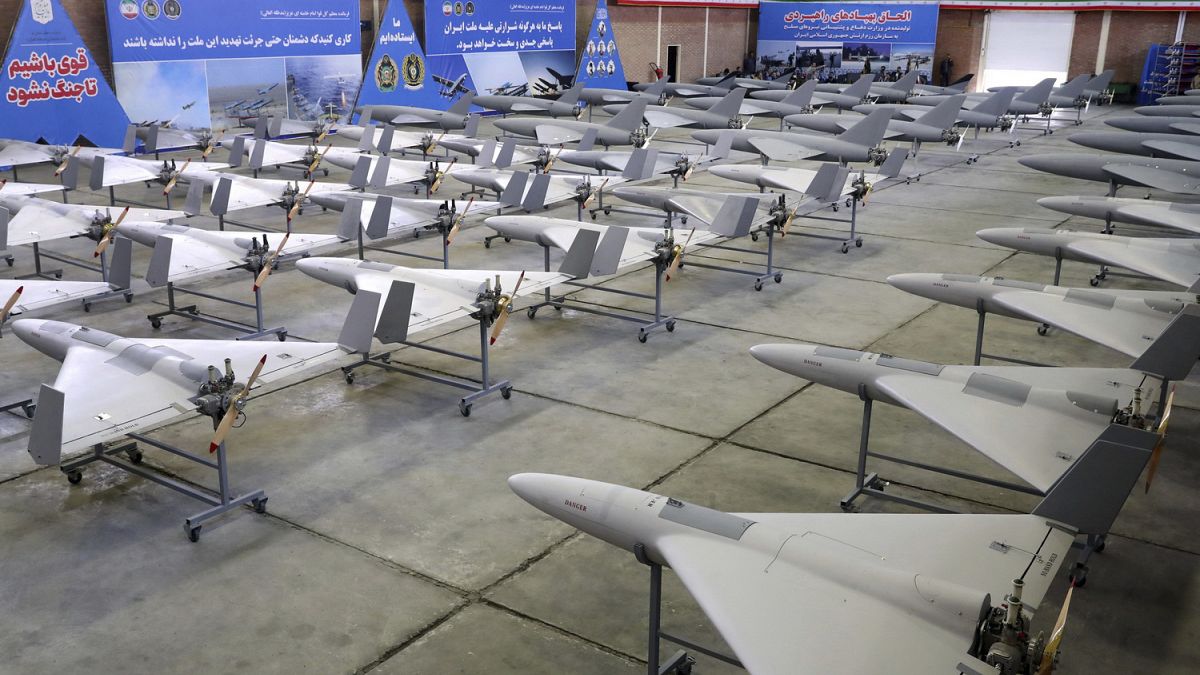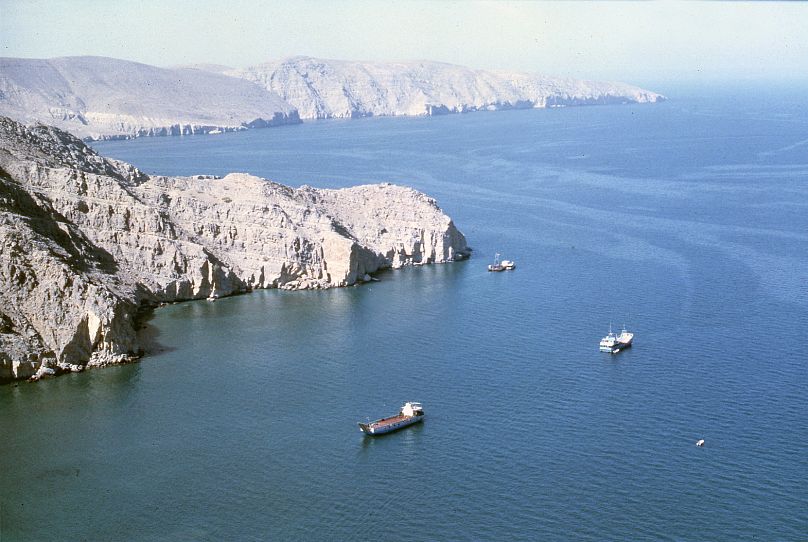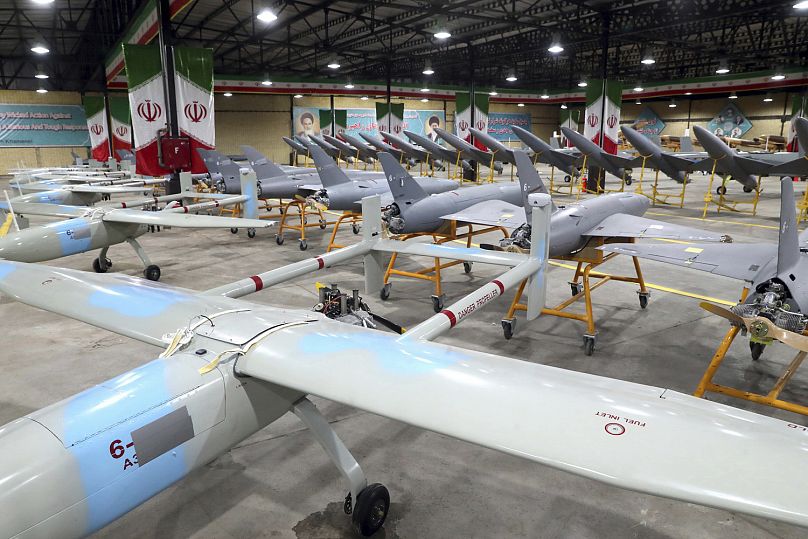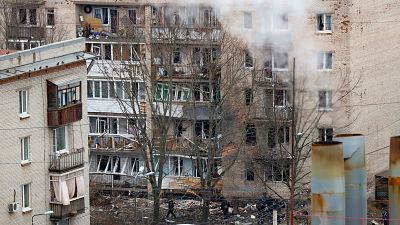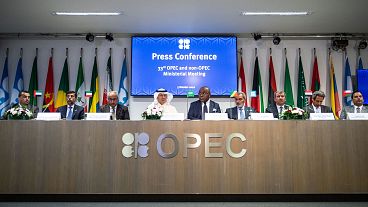Iran has recently equipped its Revolutionary Guard’s navy with drones to increase surveillance in the Strait of Hormuz as the country continues to export drones to Russia.
Recently, the US military announced that it may equip its commercial ships coming through the Strait of Hormuz with armed guards. The move comes in an attempt to reduce Iran taking over civilian and commercial ships.
In response to this US announcement, Iran has provided its Revolutionary Guard’s navy with drones, in order to increase surveillance and pressure on the Strait of Hormuz. This strait, lying between Iran and Oman, separates the Gulf of Oman and the Persian Gulf and is one of the most important for global oil transportation.
Why is the Strait of Hormuz important for European oil?
About one fifth of global oil passes through this strait annually. This is around 20.5 million barrels per day of a variety of oil products, including condensate and crude oil. Approximately 20% of global liquefied natural gas (LNG) also goes through the strait, accounting for about 80 million metric tonnes.
To put this in the European context, the European Union imported about 1.9 billion cubic meters of LNG from Qatar in 2022. Iraq exports about 21.4 million tonnes of crude oil to the EU. The US, which is the EU’s second-largest crude oil supplier, accounting for about 10% to 13% of crude oil imports, ships about 1.4 million barrels of crude oil and condensate per day through the Strait of Hormuz.
The channel is used by most major oil producers, such as the UAE, Saudi Arabia, Iran, Kuwait and Iraq.
Over the last few years, Iran has seized and detained several international tankers from the US, Japan, Saudi Arabia, Singapore and South Korea amongst others, for alleged shipping violations. However, the country has only released these ships following the other countries releasing previously detained Iranian ships.
Not only that, but it also targets smaller ships from countries such as Tanzania and the Marshall Islands, under suspicions of oil smuggling or collision with Iranian vessels.
How can international sanctions threaten the strait?
The US has also previously tried to impose sanctions on Iran to deter its rapidly growing nuclear project. These were mainly due to non-compliance of safety programs, as well as the threat that Iran’s nuclear programme could pose to the UN’s Security Council.
The UN, the EU and the UK were swift in imposing their own sanctions, mainly targeting the nuclear, energy, missiles and other arms, shipping, banking, insurance and international trade sectors.
These were mainly done in order to restrict Iran’s income from its oil exports and other industries such as shipping. However, Iran has very often retaliated by threatening to close or severely restrict the Strait of Hormuz, effectively crippling international oil and energy trade.
The current Israel-Hamas conflict has given rise to increased fears of it spilling over to a wider Middle-Eastern conflict. If so, Iran could be in even more trouble. This is because the country has already been backing Hamas, as well as regional terror groups such as Lebanon-based Hezbollah and Yemen-based Houthi.
Recently, Houthi attacked a Turkish ship in the Red Sea, on its way to India. These terror groups have also been used as testing grounds for Iranian weapons, such as drones, missiles and more.
As such, in case of a wider Middle-Eastern conflict, Iran could potentially be slapped with more international sanctions from the US and EU due to its role in aggravating the conflict, albeit indirectly.
In retaliation, this could potentially lead to Iran causing more issues in the Strait of Hormuz, by either attacking or seizing more ships, or in the worst case scenario, causing a blockage in the shipping lane.
Iranian drones could impact European oil through both the Strait and Russia
The latest Iranian move to equip its navy with drones could potentially further escalate tensions in the Strait of Hormuz with the US choosing to up the ante as well. If so, this could very well choke Europe’s crude oil supply, when the continent is already struggling to recover due to the ongoing Russian war.
Iran has also continued to supply more drones as well as drone designs to Russia despite multiple repeated international requests to stop. This has allowed Russia to install more factories to mass produce drones based on Iranian designs, with the intention of targeting more Ukrainian energy facilities.
This could be instrumental in prolonging the Russia-Ukraine conflict and disrupting Russia-EU oil supplies even more. Although the EU has severely reduced its Russian oil imports since the start of the war, the country still accounted for about 1.4 million metric tonnes of crude oil imports in March 2023.
According to the Defence Intelligence Agency, Iran had already exported upwards of 1700 Mohajer and Shahed series drones to Russia by August 2022. Moreover, plans were laid out to produce a further 6000 Iranian designed drones in Russia by early 2023. By about July 2023, Russia was frequently using Iranian suicide drones in its Ukrainian attacks.
The drones which were exported were largely smuggled into Russia using Iran’s own state airline, as well as a variety of boats. This cooperation has also started to go further with Moscow expressing its interest in purchasing ballistic missiles from Iran as well.
